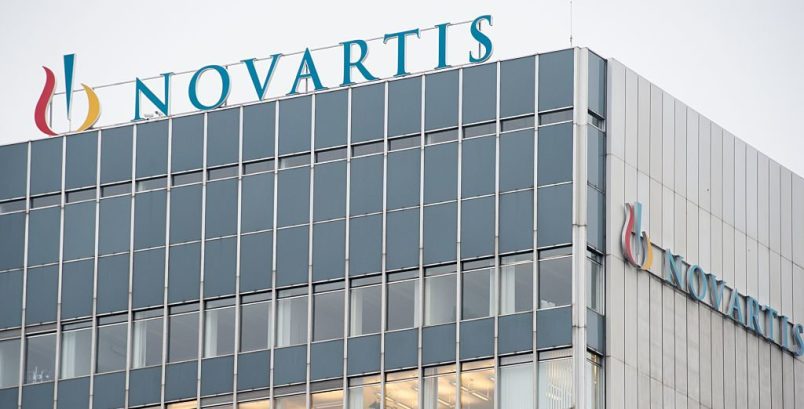It got overwhelmed by news of the new Special Counsel indictments on Friday. But a group of Senate Democrats released a report late on Thursday (or early Friday) which shows why Congressional oversight is so important and what might be in store for next year. Most coverage of the report focused on the fact that Novartis gave Trump fixer Michael Cohen policy recommendations that ended up included in official administration policy. But that’s not the most important finding.
First, the report is by minority staff from four senators from a few different committees (different jurisdictions): Sens. Wyden (the lead), Murray, Warren and Blumenthal. Key is that since they’re in the minority they have no subpoena power. They had to ask the players involved and the players were free to say no, which most did. Novartis turned over communications between Cohen and the company but declined to turn over any company documents about its internal deliberations about its work with Cohen.
First, let’s review the backstory.
Back in early May Michael Avenatti released banking records that showed that Michael Cohen’s ‘Essential Consultants LLC’ was not only used to make payments to Stormy Daniels and other women. He also used it to set up as a de facto lobbyist selling access to and influence over the Trump White House and particularly President Trump, his client. The company which paid the most was Novartis, which signed a $1.2 million one year contract in February 2017 and paid for the entire year.
After the news broke, Novartis put out a statement the gist of which was that they signed up Cohen, eager to find access to the Trump administration. But on their first meeting with Cohen in March 2017 they realized he knew nothing about health care policy or Novartis and wasn’t going to be able to help them. So they cut off contact.
Here’s the key language: “Following this initial meeting, Novartis determined that Michael Cohen and Essential Consultants would be unable to provide the services that Novartis had anticipated related to US healthcare policy matters and the decision was taken not to engage further. As the contract unfortunately could only be terminated for cause, payments continued to be made until the contract expired by its own terms in February 2018.”
It turns out this was totally false.
The report is 21 pages long, with many interesting details. But here’s the core part.
On May 11, 2018, Novartis issued a misleading public statement minimizing its relationship with Mr. Cohen. Novartis stated that, on March 1, 2017, after signing the agreement with Mr. Cohen and meeting with him one time, company officials determined he would not be able to provide the anticipated services and “decided not to engage with him further.” But documents provided by Novartis reveal that Mr. Cohen and thenNovartis CEO Joe Jimenez had multiple additional communications over the next six months. These documents indicate that Mr. Cohen and Mr. Jimenez – who was still the Novartis CEO at the time – had at least four phone calls, and, between April and September 2017, exchanged multiple emails on substantive issues, including the Trump administration’s drug pricing proposals, Novartis’s potential investment in a small drug company backed by Columbus Nova, and with regard to opioid lawsuits.
The authors of the report go into great detail about why this makes the Novartis statement “misleading”; Novartis later issued a convoluted explanation of why it wasn’t. But it’s really straightforward: they just straight-up lied. Their false claim was clearly meant to take advantage of the fact that Cohen is widely believed to be a corrupt rube (no doubt true) who, upon any substantial discussion, would show he was clueless and useless for what they had in mind.
But again, that’s not what happened. As the evidence in the report shows clearly, Cohen and the CEO had extensive communications lasting at least until September 2017, covering the kinds of questions and favors the contract would lead you to expect. Notably, Jimenez eagerly agreed to go to bat when Cohen asked for assistance getting Novartis to invest in a speculative drug start-up that appears to have been controlled by another of his clients, Columbus Nova, the US-based investment vehicle for Viktor Vekselberg, the influential Russian oligarch. (There was also discussion of how to fight lawsuits against the manufacturers of opioids.)
Here’s the exchange about the drug start-up.

At least Novartis claims that they didn’t invest. And presumably they didn’t. But how would we know? They lied about having any contact at all. To me, that’s the most significant part of this report. They appeared to take their lumps with a public statement admitting they actually paid much more than the Avenatti documents suggested. Sort of embarrassing. They signed him up because they were desperate to get ins to the Trump administration. But it was a bust and they lost $1.2 million. But that wasn’t remotely true.
I have little doubt there are numerous examples of this. Indeed, the entirety of the Trump administration is built on them. Not just corruption or sleazy behavior but numerous cases in which we only know the barest outline of what is happening because no one is demanding answers. We have the Special Counsel. But his office is rightly maintaining a tight grip of secrecy. We have numerous enterprising journalists uncovering most of what we do know. But as any journalist will tell you, there are steep obstacles to what can be uncovered if no one has subpoena power. (Remember, basically everyone but Novartis told the Senators to talk to the hand. And Novartis itself refused most of the requests.) The Congress has almost entirely abdicated that authority and responsibility under President Trump. But that could change in 2019.






